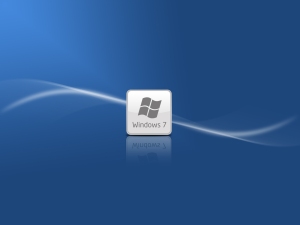Tagged: Windows XP
Windows 7 hits the market

NEW YORK–Although the official U.S. launch event is still some hours away, Microsoft’s Windows 7 operating system has hit the market, going on sale in a number of countries across the globe.
Executives from Microsoft have fanned out to celebrate the launch of the company’s core product upon which the rest of Redmond’s empire has been built. The software giant is counting on favorable reviews and new features to help Windows rebuilt its image in the face of a disappointing response to Windows Vista.
(Credit: Microsoft)
Microsoft is touting the value of Windows in the face of a resurgent Apple. As part of the launch, Microsoft is celebrating seven days of deals in a number of key markets, including the United States. Among the specials is a $1,200 package from Hewlett-Packard and Best Buy that includes a Netbook, laptop, desktop, monitor and router as well as in-home installation.
“The Best Buy offer is a home makeover,” Microsoft Vice President Tami Reller told CNET News. “For the price of a Mac you have a new notebook, a new Netbook, a new desktop, and a new router to bring it together with the help of the Geek Squad.”
In addition to landing on new PCs, Microsoft will also sell stand-alone versions of Windows 7 that can be used to upgrade an existing PC. Although Microsoft still offers a half-dozen different flavors of the operating system in all, Redmond is focusing its energies around two versions–the Home Premium and Professional versions.
It will sell both a full version of the operating system that can be used on any hardware as well as an upgrade version to be used on existing PCs. Although both Windows XP and Windows Vista can be upgraded to Windows 7, only Vista can be done without backing up and reinstalling both programs and data.
A huge marketing blitz will accompany the debut of Windows 7, with Microsoft continuing its “I’m a PC” campaign, by featuring average users who point to various aspects of the new operating system as representing their idea.
Microsoft plans to formalize the launch with an event here with CEO Steve Ballmer (CNET News will cover the 11 a.m. ET event live). The software maker is also opening its first retail store, in Scottsdale, Ariz., as well as a “Windows Cafe” in Paris.
Steven Sinofsky, the divisional president who has spearheaded the development of Windows 7, is presiding over the Japanese launch of the product, while designer Julie Larson-Green is at an event in London.
Microsoft employees in Redmond’s Building 37 plan to remotely ring the bell to open Nasdaq trading on Thursday, while Microsoft and its computer maker partners will ring the closing bell.
The product has already gone on sale in Australia.
Source: http://news.cnet.com/
Microsoft Readies XP Mode For Windows 7 Launch

Microsoft on Thursday released Windows XP Mode to manufacturing and said it will make XP Mode available as a public download on Oct. 22, the official launch date for Windows 7.
XP Mode is Microsoft’s acknowledgment that many customers skipped Vista and will be moving to Windows 7 directly from XP, an OS that’s now nearly eight years old. Microsoft says XP Mode is designed for SMBs that have been running older or custom-built applications, and it maintains backward compatibility with these apps through a virtual Windows XP SP3 environment running under Windows Virtual PC.
Microsoft VARs like the backward compatibility approach that XP Mode represents, and many have been using XP Mode as a selling point for Windows 7. Still, there are reasons to believe that XP Mode might not have an immediate impact on Windows 7 upgrades.
Customers that buy Windows 7 Professional, Enterprise and Ultimate editions will get XP Mode as a free download. But they’ll need to buy new hardware, since XP Mode requires PCs with at least 2 gigabytes of RAM and 15 gigabytes of free hard drive space, as well as virtualization-enabled processors from Intel and AMD.
Despite recent signs of economic improvement, it’s worth questioning whether 2010 will see any large-scale loosening of IT purse strings. Given the resiliency of small businesses, and their unmatched ability to do more with less, it’s possible that some will just stay with their XP machines and give XP Mode a miss.
Source: http://www.crn.com/